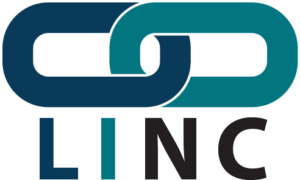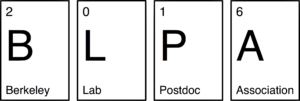1. Networking Really Works: Here’s How You Do It
Everybody talks about how important networking is to advancing your career and uncovering professional opportunities in science. It’s even MORE important for early career success at a national lab. In this workshop, I will describe practical strategies and tactics for developing your networking skills and maximizing the probability of finding your next great opportunity. Even if you think you’re shy, hate reaching out to strangers, or fear your English skills may put you at a disadvantage, we will explore networking strategies that really work.
Peter S. Fiske, Ph.D., is the Director of LBNL’s Water-Energy Resilience Research Institute. He is also the author of “To Boldly Go: A Practical Career Guide for Scientists” and its second edition: “Put Your Science to Work: A Take-Charge Career Guide for Scientists” both published by AGU. From 2006-2009 he wrote a monthly column on career development and entrepreneurship called Opportunities on the AAAS career website (www.ScienceCareers.org). He also writes occasional articles on careers and career strategy for scientists for Nature Magazine. He has organized and lead panel discussions and workshops on alternative careers and career development for scientists at national and international meetings, universities, and national laboratories.
2. Common Misconceptions about Start-ups and Industry
Like academia, startup life can be incredibly rewarding, with ample opportunity to grow scientifically, professionally, and personally. Also like academia, it can be demanding, frustrating, and uncertain. We’ll discuss some of the similarities and differences between academia and tech startups, and we’ll discuss how to best prepare you for this transition. We’ll address some common misconceptions about startups, and we’ll consider what you should look for in a company you join.
Frankie Mayers, Ph.D is Director of Engineering at Lucira Health Inc., a silicon valley startup that is developing home-use medical diagnostic devices for infectious disease. Prior to this role, he was a staff scientist and lecturer at UC Berkeley where he built automated mobile phone-based microscopes for global health. He obtained his PhD in 2012 from UC Berkeley. He has a research and teaching background in microfluidics and biomedical instrumentation.
3. Job Exploration: Working in Policy
Does the news make you consider how to contribute to the world with a career in Science Policy? Have you heard about “working in policy” but wonder what is really involved in this career? This workshop will answer many of your questions and give you some useful information.
By the end of this workshop, you will be able to:
1. Name the variety of careers in this work sector
2. Name the entry points into a career in Science Policy, including fellowships
3. Develop a strategy for positioning yourself for your next step, whether as a career explorer or someone ready to apply for science policy positions
Whether you are just curious about where Science Policy professionals work, or you know you are ready to apply for a Science Policy fellowship, this is the session for you.
Patti Meyer, Ph.D., most recently served the Ph.D. and Postdoctoral Scholars at UCSF as a Career Counselor and has delivered many workshops. She is interested in meeting the needs of the life scientists and the social and population scientists by providing well-timed relevant programs, useful web-based resources and one-on-one counseling that helps Postdocs take action to move along their career path. Patti has delivered services to students at a variety of colleges and universities for over twenty years. These included her work with an NSF-funded, Bay Area-based initiative to improve science training for K-12 teachers, and as coordinator of the Women’s Health Internship program at the National Center in Excellence in Women’s Health at UCSF. During her five years at UC Berkeley, where she worked with pre-health and pre-medical students, she was introduced to an array of career services for Ph.D. students.
4. Launching a Faculty Job Search and Preparing Your Application Materials
This workshop will present information on how to organize your academic job search, including the various components of an application package. First, we will review the academic job search timelines, along with principles for presenting yourself well on paper. Then, after reviewing the anatomy of a strong academic CV and cover letter, join a mock faculty search committee to critique two real application packages. Finally, learn the fundamentals for writing a successful research and teaching statement. Throughout the workshop, we will cover basics then jump quickly into how to refine and tailor your materials for a particular department or type of institution.
Bill Lindstaedt serves as Assistant Vice Chancellor for Career Advancement, International and Postdoctoral Services at the University of California San Francisco. Since 2001, Lindstaedt has been assisting UCSF’s graduate-level trainees and postdoctoral research scientists as they prepare to move on to post-training positions rich in education, leadership, and discovery. He has developed particular expertise advising life and health scientists as they transition from academic positions to careers in industry settings. In addition to his leadership and career counseling responsibilities, he has co-authored the popular “myIDP” career development tool, which is hosted by the careers site of the journal Science and now serves nearly 150,000 registered scientists worldwide.
@BerkeleyLab – www.lbl.gov – postdoc-career-fair@lbl.gov – postdoc.lbl.gov – @BerkeleyPostdoc


